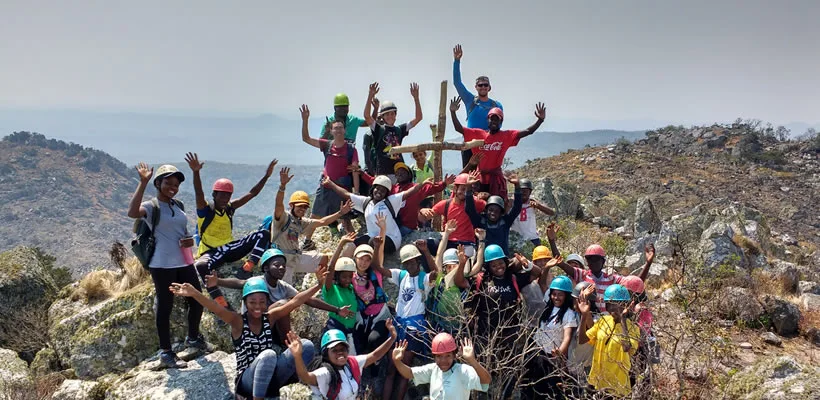
Adventure Education
Overview
Adventure education indicates learning through adventure-centred experiences. It is an experiential learning method that takes place in the outdoor. It includes a wide variety of activities like camping, hiking, rock climbing, and canoeing in order to promote personal growth, develop social skills, and amplify physical and mental health.
Objectives
- Skill Development
- Environmental Awareness
- Personal Growth
- Cultural Competence
- Self-reliance
- Leadership Training
- Develop social skills
Prerequisites
- Basic outdoor skills
- Physical Fitness
- First Aid/CPR Certification
- Certain age requirement
Curriculum Outline
- Introduction to Adventure Education
- Outdoor Skills and Techniques
- Leadership and Group Dynamics
- Risk Management and Safety
- Environmental Education and Sustainability
- Theoretical Foundations of Adventure Education
- Teaching and Curriculum Development
- Career Pathways in Adventure Education
- Capstone Experience
Teaching Method
- Experiential Learning
- Outdoor Fieldwork
- Group Activities and Team Challenges
- Reflection and Debriefing
- Group Activities and Team Challenges
- Mentorship and Peer Teaching
Modules
- Leadership and Facilitation
- Introduction to Adventure Education
- Outdoor Skills and Techniques
- Risk Management and Safety
- Environmental Education and Sustainability
- Psychology of Adventure Education
- Teaching Methods in Outdoor Education
- Expedition Planning and Management
- Cultural Perspectives in Adventure Education
- Adventure Sports Coaching
- Adventure Tourism
- Community Engagement
Assessment Methods
- Practical Skills Assessments
- Field-Based Projects
- Safety and Emergency Response Drills
- Examinations
- Written Assignments
Course Duration
The course duration may vary by institution and location. In the UK, full-time study can take about 3 to 4 years, and part-time can take about 4 to 6 years.
Facilities
- Outdoor Training Areas
- Climbing Walls
- Equipment Storage and Rental
- Classrooms and Lecture Halls
- Outdoor Education Centre
- Fitness and Conditioning Centres
- Wilderness Areas
- Technology and Equipment
Career Pathways
- Outdoor Educator/Instructor
- Adventure Tour Guide
- Wilderness Therapist
- Adventure Sports Coach
- Environmental Educator
- Outdoor Programme Coordinator
- Freelance Instructor
Fees and Fundings
The fees depend on the institute and location. However, in the UK, the tuition fees for international students can lie between £15,000 and £25,000 per year for undergraduate programmes and from £15,000 to £30,000 for the entire postgraduate course.
Entry Requirements
- A-Levels
- GCSEs
- Relevant Experience
- Personal Statement
- References
- Interviews
- English language proficiency
Field Work and Internships
- Expeditions and Trips
- Practical Skill Development
- Environmental Studies
- Team-Building Exercises
- Reflection and Debriefing
- Networking and Professional Development
- Real-World Experience
- Mentorship
Certifications
- Wilderness First Responder (WFR)
- Leave No Trace Trainer
- American Mountain Guides Association (AMGA)
- Professional Association of Diving Instructors (PADI)
- National Outdoor Leadership School (NOLS)
- National Association for Interpretation (NAI)
- Certified Outdoor Educator (COE)
- Bicycle Instructor
- Adaptive Sports Instructor
Intakes
In the UK, the primary intake happens in September/October, and the secondary intake happens in January/February.
Student Testimony
“We were supported towards our interpretation of what the course meant, and for me, it was less about instructing and more about adventure in what I thought was its purest form.” [Cameron Southey from University of Chichester]
Frequently asked questions
In an adventure course, students are introduced to a wide range of adventure sports like mountaineering, trekking, tent pitching, survival in jungles, and more.
